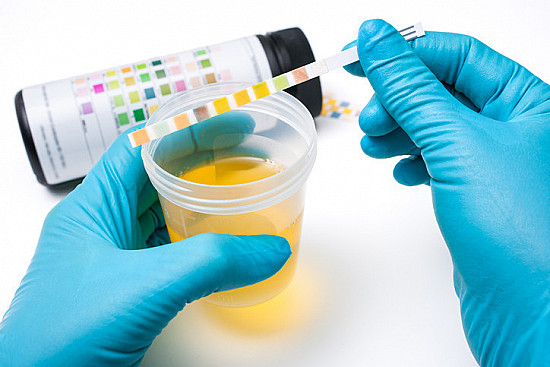The dos and don'ts of managing diverticular disease
Pay attention to symptoms and follow a healthy lifestyle.

Stay away from nuts and seeds, and don't eat popcorn — that's what doctors said years ago if you had diverticulosis, a condition marked by tiny pouches (diverticula) that develop in the lining of the colon. The thinking was that little bits of food could get stuck in those pouches and cause inflammation or infection (which is called diverticulitis). Today we know the advice was wrong.
"You don't have to worry about eating nuts, seeds, or popcorn. The evidence does not show a higher risk of diverticulitis in people who eat a lot of those foods, compared with people who don't," says gastroenterologist Dr. Lawrence S. Friedman, a Harvard Medical School professor and the Anton R. Fried, M.D., Chair of the Department of Medicine at Newton-Wellesley Hospital.
What else do we know today about coping with diverticular disease? Here are some dos and don'ts.
DON'T fret over diverticulosis
Diverticulosis is common, especially as we get older. It occurs in about 40% to 60% of people by age 60, and typically develops in the lower left side of the large intestine (the sigmoid colon). "We think increased pressure in the colon pushes diverticula out through weak spots in the colon wall," Dr. Friedman says. "Diverticulosis is generally asymptomatic, and you probably won't know you have it unless you have had a colonoscopy or abdominal imaging."
DO report bleeding
In about 5% of people who have diverticulosis, rectal bleeding occurs when a small blood vessel ruptures in a diverticulum. This is known as diverticular bleeding. "It's not clear what causes it. Bleeding sometimes is triggered by medications like nonsteroidal anti-inflammatory drugs [a common class of pain relievers that includes aspirin] or blood thinners," Dr. Friedman says.
Even if you have minor bleeding that stops on its own, call your doctor to get it checked out. "If there's a lot of bleeding and you get lightheaded or faint, you should go to the emergency department. You could lose a lot of blood, and you need to find the cause of the bleeding and receive treatment," Dr. Friedman advises.
DON'T strain in the bathroom
If you have diverticula, putting pressure on them (if you're constipated, for example) may cause one to rupture (perforate) and become inflamed or infected (diverticulitis). "We don't really know what triggers perforation. Constipation is one possibility," Dr. Friedman says. "We do know that 4% to 15% of people with diverticulosis develop diverticulitis."
DO report pain
Diverticulitis symptoms include pain and cramps in the lower left part of the abdomen, as well as diarrhea, constipation, fever, nausea, or vomiting. Call your doctor if the pain doesn't go away or if it's intense. "In mild cases without fever, you may not need to be treated with antibiotics," Dr. Friedman says. "But if diverticulitis is severe, you'll need to be admitted to the hospital and be treated with intravenous antibiotics and a liquid diet for a few days." About a third of cases of diverticulitis are severe.
DO maintain a healthy lifestyle
Living a healthy lifestyle is good for your gut. If you smoke, try to quit, and maintain a healthy weight. Smoking and obesity are associated with diverticular complications.
Vigorous physical activity (like jogging, swimming laps, or playing tennis or basketball) is associated with a reduced risk of diverticulitis and diverticular bleeding. And any exercise that gets your heart and lungs pumping (like brisk walking) is believed to support a diverse population of helpful microbes in the gut, which are thought to play a role in healthy aging and longevity.
Don't forget a healthy diet. Typical Western diets that are both low in fiber and high in saturated fats, including red meat, are associated with an increased risk for diverticulitis.
Will changing your diet help? The studies are mixed. However: "We still think a high-fiber diet is important because it's good for heart health; reducing chronic inflammation; and making the bowels move regularly, which helps to maintain gut health and reduce pressure against diverticula," Dr. Friedman says.
Drink lots of water and aim for 25 to 30 grams of dietary fiber every day from beans, whole grains, vegetables, fruits, nuts, and seeds.
"Yes, nuts and seeds — foods once thought to trigger diverticulitis — are actually full of fiber and are tied to many aspects of good health," Dr. Friedman says. "You can eat a handful of nuts and seeds every day and your gut will thank you for it.
Image: © Fascinadora/Getty Images
About the Author

Heidi Godman, Managing Director
Disclaimer:
As a service to our readers, Harvard Health Publishing provides access to our library of archived content. Please note the date of last review or update on all articles.
No content on this site, regardless of date, should ever be used as a substitute for direct medical advice from your doctor or other qualified clinician.
















